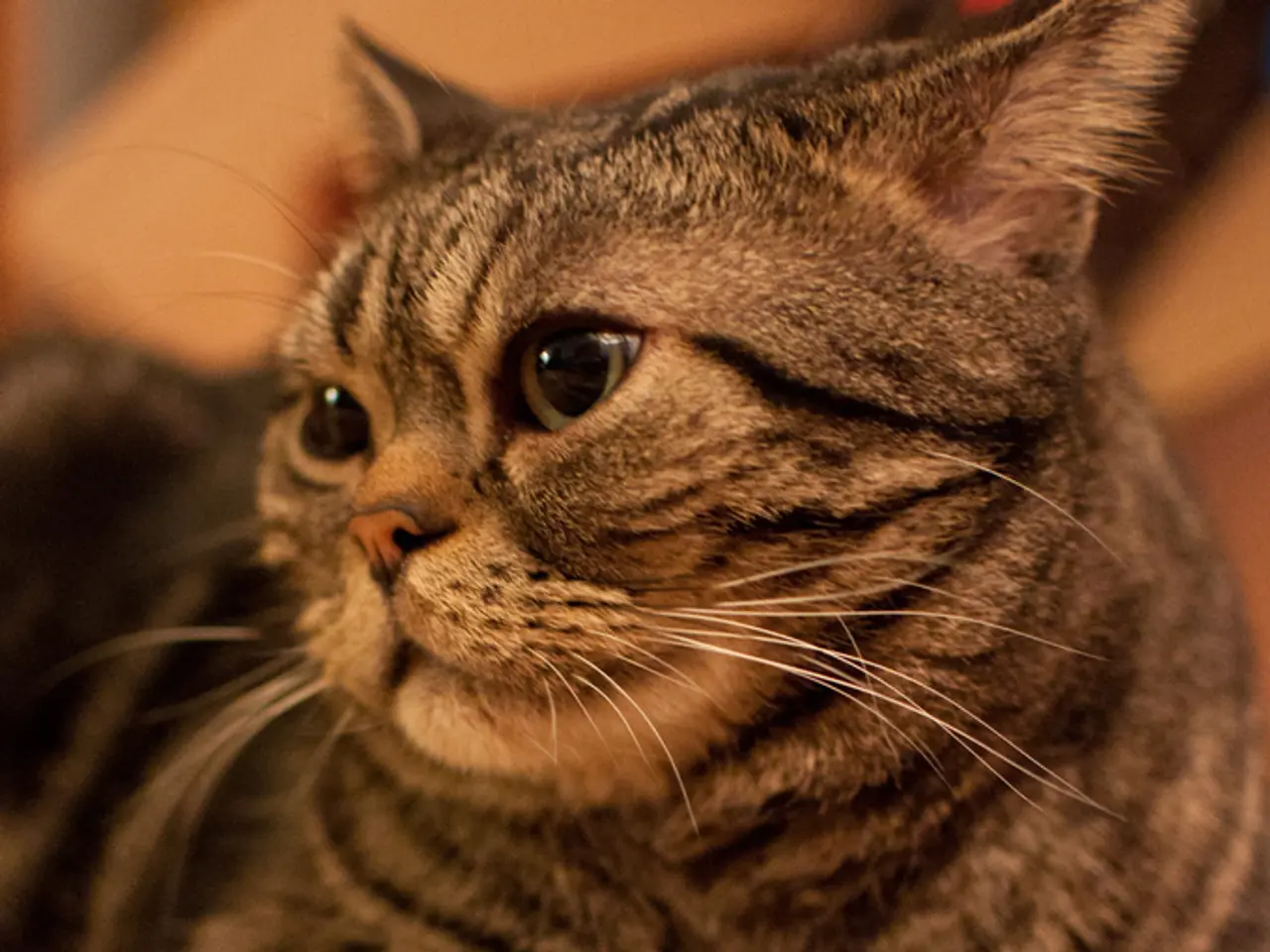Feline Melancholy: Triggers, Signs, and Methods for Alleviation
In the feline world, cats may experience feelings of sadness, although they might not express it in the same way humans do. This article aims to provide cat owners with valuable insights into the causes of sadness in cats, the signs to look out for, and measures that can be taken to alleviate it.
Cats might become sad due to various reasons, such as environmental changes, loss of a companion, changes in routine, boredom, pain and illness, lack of social interaction, and aging. For instance, moving to a new home, rearranging furniture, or the arrival of new family members (human babies or pets) can cause stress and sadness in cats. Similarly, Cats grieve after losing an owner or a pet friend, and alterations in feeding times, sleep schedules, or owner's arrival/departure times can trigger sadness.
Indoor cats, especially, can become bored without sufficient mental or physical activity, leading to feelings of sadness. Chronic diseases like arthritis, kidney disease, dental problems, or infections often contribute to depression. Particularly affectionate cats may become depressed if they receive inadequate attention. As cats age, they might experience sadness related to physical or cognitive decline.
Signs that a cat may be sad or depressed include decreased appetite or changes in eating habits, lethargy or reduced activity, withdrawal or avoiding social interaction with humans or other pets, loss of interest in favorite toys or activities, changes in grooming habits, altered sleeping patterns, abnormal aggressive behavior, changes in litter box usage, increased vocalization, and self-mutilating behaviors like excessive licking or pulling fur.
For cat owners, it is crucial to watch for behavioral changes such as reduced appetite, less playfulness, increased hiding, or aggression. Monitoring any changes in routine behavior, grooming, or social interaction can be critical clues. Since many signs of sadness overlap with medical problems, owners should consider veterinary evaluation to rule out physical causes.
To help alleviate cat sadness, cat owners can provide their feline friends with a stable environment, consistent routines, enrichment activities, social interaction, and prompt veterinary care for any pain or illness. Providing new cat toys and games, installing a new window perch or cat tree, or building a "catio" can provide stimulation to help alleviate sadness. Offering scratching posts and perches can keep cats from becoming bored, which can lead to stress and sadness.
Bonding activities with your cat can decrease stress and allow your cat to rediscover happiness. Providing toys that allow cats to exhibit natural behaviors like hunting, pouncing, swiping and swatting can help prevent cat sadness. Synthetic cat pheromones and cat-safe food supplements can be used to help alleviate cat sadness.
If you notice signs of sadness in your cat, it's recommended to visit the vet to rule out any potential health problems causing the symptoms. It's important to know what is normal for your cat and to be on the lookout for changes in behavior that may indicate sadness.
In conclusion, understanding and addressing cat sadness is essential for the well-being of our feline companions. By recognising the signs, providing a stimulating environment, and seeking veterinary care when necessary, cat owners can help their cats maintain a happy and healthy life.
Cats' mental health can be affected by various factors, such as changes in environment, the loss of a companion, or chronic health issues like arthritis or dental problems. A cat's reduced appetite, altered sleeping patterns, or withdrawal from social interaction might indicate feelings of sadness.
Pet owners can help alleviate cat sadness by offering enrichment activities, regular social interaction, prompt veterinary care for any health issues, and providing toys that allow cats to exhibit natural behaviors. Regular bonding activities, synthetic cat pheromones, and cat-safe food supplements can also help improve a cat's mental health and overall well-being.




